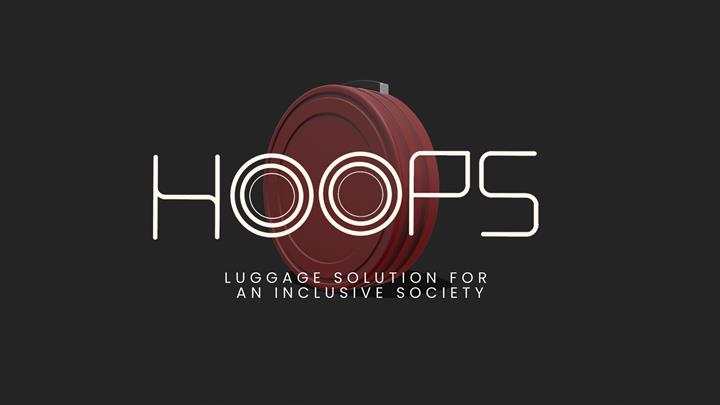What it does
Hoops is a revolutionary piece of luggage designed for wheelchairs. By being attached to the wheel's axis, its user is given absolute autonomy when travelling. We introduce you to a modern, inclusive product that meets the UN Sustainable Development Goals.
Your inspiration
Our cities are not designed for the disabled. With the will to design a project that would give autonomy to wheelchair users in a city that has certainly not been designed for them, we included some members of this minority in our team in order to listen to their needs. This research allowed us to realize that in today's luggage market there is no alternative that allows wheelchair users to carry their own luggage, so freedom is always sacrificed when it comes to travelling. This is how we decided that there was an urgency both in the market and in our society for the design of an inclusive alternative that could solve this problem.
How it works
When studying the operation of this project, many challenges had to be faced. We worked hard in order to find the perfect solution for each of these challenges, coming up with a functional, honest design. Firstly, both the luggage and the wheel's axis are coupled together. The suitcase is hooked into the shaft by a simple system. It consists of a cylinder (part of the suitcase) that fits into the axis. The wheel has a bearing so neither the axis nor the luggage revolve, while the wheel can rotate freely. The suitcase's weight falls on its axis, so the wheel's moment of inertia stays the same and the effort required to move the chair does not vary. Its volume also had to be evaluated. When both suitcases are put together they measure the same as a cabin suitcase, while improving the wheelchair's stability being splitted simmetrically in two. Finally, it has an ergonomic handle, that allows the user to easily dock and undock the suitcase by pressing a button.
Design process
Being a project that aims to solve a problem that an invisible part of our society has to face every day, the inclusion of members of this minority in our design team has been essential. We have been able to work with a lot of feedback in the form of statements and interviews during our design process, that came from wheelchairs' everyday users. Along this process, we have worked with different methods of ideas generation and solutions, always keeping in mind important aspects such as the stability and the fluent movement of the chair alongside with the circular design of our product, using 100% recycled materials that can also be recycled in a 100% rate. Before reaching this definitive solution, we had also come up with other alternative proposals: the possibility of hooking the suitcase in other parts of the wheelchair such as the back (which would sacrifice its dimensions and its stability), maybe a suitcase with wheels attached on the side of the wheelchair (which would be difficult to carry, unstable and extremely easy to steal) or maybe a suitcase that could rotate with the wheel (which would sacrifice storing fragile products). After a lot of work and ideas, HOOPS was born.
How it is different
HOOPS goes way beyond putting an end to a problem that people with disabilities have to face every single day, but it is a project that actively contributes to the social trend that is committed to the inclusion of minorities in our society and does so by providing disabled people with full independence so that they can lead a life just like any other person. Unlike most projects, HOOPS is not a product to do a certain task better, but a revolutionary project that allows wheelchair users to perform tasks that they simply cannot do for themselves at the moment, since there is not a single alternative on the market that considers their autonomy as a feasible solution to this problem.
Future plans
As a team, we strongly believe that HOOPS is a game changer regarding the inclusion of disabled people in our society. That is the reason why we have outlined a roadmap to make our project a reality. We have contacted the AEP (Spanish Association for the Disabled) to team up with them to test our project and get feedback. Moreover, the Polytechnic University of Madrid will allow us to study in depth these circular materials, their recyclability and find sustainable ways to get them. There is still a long way to go, but we believe that it involves designing products for an autonomous society, achieving equality through sustainable design.







Share this page on
LinkedIn
Facebook
Twitter